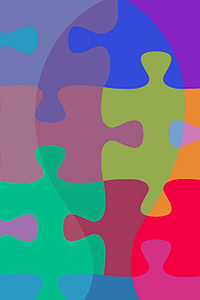Psychological Therapies

Acceptance and Commitment Therapy (ACT)
Mindfulness means to consciously pay attention to your here-and-now with flexibility, openness and curiosity.
ACT (pronounced as one word) assumes that the psychological processes of a normal human mind are often destructive and create psychological suffering for us all, sooner or later. Symptom reduction is not a goal of ACT (although this can often happen), based on the view that ongoing attempts to “get rid of symptoms” can create psychological problems in the first place. The term “acceptance” in ACT means opening up to and making room for painful feelings, sensations, urges and emotions. The goal of Acceptance and Commitment Therapy is to help the client create a rich and meaningful life, while accepting the pain that inevitably goes with it. So this type of psychological therapy is about taking effective action guided by our deepest values, in which we are fully present - head, heart and feet engaged in life.
If you wish to know more about ACT please Download the Overview of ACT (PDF)
Website links to ACT Videos:

Cognitive Behavioural Therapy (CBT)
Cognitive Behavioural Therapy (CBT) is a family of talking therapies, all based on the idea that thoughts, feelings, behaviours , and bodily sensations, are all connected. If we change one of these, we can alter all the others. When we’re low or upset, we often fall into patterns of thinking and responding which can worsen how we feel. CBT works to help us notice and change problematic thinking styles or behaviour patterns so we can feel better. CBT is a collaborative therapy - it’s not something that is done to someone, it’s a way of working together with a CBT therapist on mutually agreed goals. CBT is mainly concerned with how we think and act now, although sometimes our current difficulties are related to things which have happened in our past, and so these might also be part of what we talk about. Goals for therapy are set together with the therapist after talking things through to properly understand the problem. Most sessions begin with agenda setting - agreeing together what that session will concentrate on. A therapist will not tell someone coming for therapy what to do or what to talk about. CBT works best when it involves working on things in between sessions as well as during them. Tasks will be planned together. As the therapy comes to an end, we will think together about how to continue using CBT techniques in daily life after treatment.

Compassion Focused Therapy (CFT)
Compassion focused therapy (CFT) was developed by Professor Paul Gilbert OBE. It's a model of psychological therapy that encourages people to be compassionate toward themselves and towards others and was developed to combat high levels of shame and self-criticism that often-come hand-in-hand with mental health difficulties. Compassion-focused therapy aims to restore, or even introduce, ideas of safety, compassion and reassurance in individuals who may have grown up in environments where these were lacking, in critical, abusive, or neglectful environments.
Paul Gilbert also founded the Compassion Mind Foundation in 2008 (see www.compassionatemind.org.uk) which explains why compassion is at the centre of their work: "When people hear the word compassion, they tend to think of kindness. But scientific study has found the core of compassion to be courage. A standard definition of compassion is, "a sensitivity to suffering in self and others with a commitment to try to alleviate and prevent it." The courage to be compassionate lies in the willingness to see into the nature and causes of suffering – be that in ourselves, in others and the human condition. The challenge is to acquire the wisdom we need to address the causes of suffering in ourselves and others. Compassion is one of the most important declarations of strength and courage known to humanity. It is difficult and powerful, infectious, and influential. It is a universally recognised motivation with the ability to change the world."
Compassion-focused therapy integrates techniques from:
- Cognitive behavioural therapy (CBT)
- Developmental psychology
- Evolutionary psychology
- Social psychology
- Neuroscience
- Buddhist philosophy